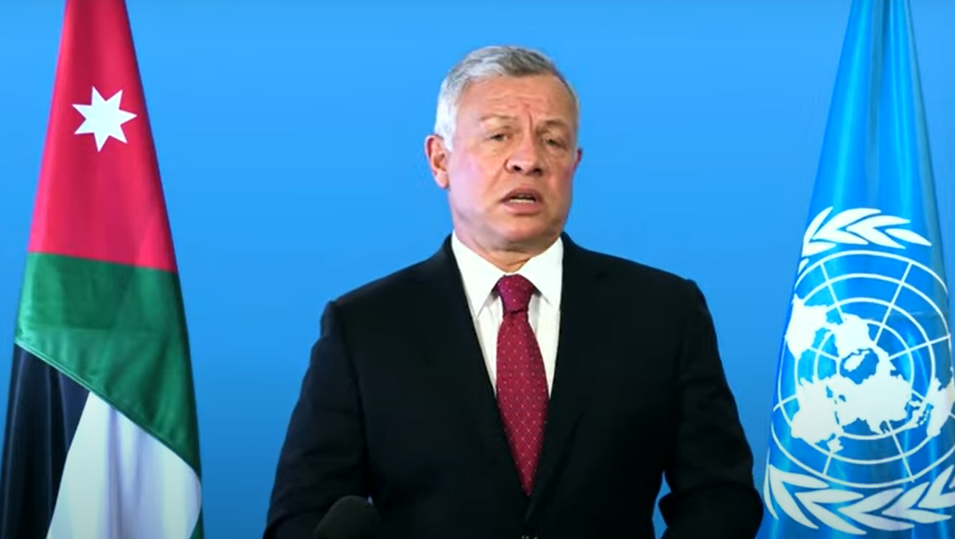The situation in Judea and Samaria has captured Jordan’s attention, particularly due to the rise of approximately 20 armed militias in northern Samaria and the simultaneous weakening of the PA’s authority.
Furthermore, reports have emerged about the declining health of 88-year-old Mahmoud Abbas. On June 10th, the Lebanese newspaper “Al-Akhbar” reported that Abbas’s health no longer allows him to continue in his position for much longer.
The United States and Israel are concerned, while the PA asserts that Abbas declined admission to a hospital in Ramallah for testing. Instead, various doctors conducted medical tests at the Mukataa in Ramallah, where Abbas resides. Prior to his recent trip to the United Nations in New York, Abbas also underwent secret medical tests in Jordan.
Within the Fatah movement, two senior officials envision themselves as potential successors to Mahmoud Abbas. One is Hussein al-Sheikh, the secretary-general of the PLO’s executive committee, and the other is Majed Faraj, the head of Palestinian intelligence.
However, at the grassroots level of the movement, Fatah activists prefer Marwan Barghouti, currently serving five life sentences in an Israeli prison, as the successor to Abbas. Barghouti leads in Palestinian public opinion polls as the favored candidate for the position.
The prospect of Hussein al-Sheikh succeeding Mahmoud Abbas faces resistance from Abbas himself, as well as senior Fatah officials such as Jibril Rajoub, Mahmoud Al-Alul, and Majed Faraj.
These individuals are actively working against the possibility of al-Sheikh assuming the role.
Jordan is gravely concerned that the succession battle among various militias in Judea and Samaria may deteriorate into a civil war, destabilizing the East Bank of Jordan and threatening the continued rule of the Hashemite dynasty.
Jordan’s anxiety is further exacerbated by the absence of a political horizon between Israel and the PA, the proliferation of armed militias in the West Bank, and the PA Chairman’s insistence on not designating or preparing a successor due to an excessive self-assurance of his long-term survival.
The Jordanians have shared their concerns with the Biden administration, who recently summoned the head of Israeli Shin Bet, Ronen Bar, to Washington to seek his professional opinion on the matter.
Jordan’s greatest fear is that the right-wing Israeli government could exploit the security chaos in Judea and Samaria following Mahmoud Abbas’s departure from the political stage.
In this scenario, Israel might encourage the immigration of Palestinians from the West Bank to Jordan and declare Jordan as “Palestine,” where the future Palestinian state would be established.
Should this occur, Jordan would lose its special status as the custodian of the holy sites in Jerusalem, as stipulated in the 1994 peace agreement between Jordan and Israel.
According to sources within the Fatah movement, Jordanian intelligence has increased its involvement in the PA succession battle and is engaged in consultations with Majed Faraj, the head of Palestinian intelligence, and Hussein al-Sheikh, the secretary-general of the PLO’s executive committee.
King Abdullah receives regular reports on the developments within the PA leadership.
Senior Jordanian security officials are advising King Abdullah to prepare an emergency plan in the event of Mahmoud Abbas’s sudden passing and if acts of violence erupt among the various militias in the West Bank.
Jordanian intelligence has recommended that King Abdullah take immediate action to enhance Jordan’s influence in the West Bank and strengthen relationships with all senior Fatah officials involved in the succession battle, as well as with the Hamas movement. Jordan seeks to maintain all its options open.
The potential collapse of the PA represents a nightmare scenario for Jordan, as it could significantly undermine the kingdom’s stability.
Consequently, King Abdullah adopts a cautious approach, refraining from interfering in West Bank affairs as long as Mahmoud Abbas continues to function normally.
King Abdullah also exercises caution in dealing with the right-wing Israeli government, avoiding unnecessary confrontations and considering the possibility of seeking assistance should Mahmoud Abbas abruptly step down, leading to security chaos in Judea and Samaria.
In such a scenario, Jordan would require Israel’s cooperation to prevent mass Palestinian migration from the West Bank to Jordan and for political collaboration concerning the future of the West Bank.
Egypt shares similar concerns about the state of the Palestinian Authority and the potential ramifications of its collapse on Egypt’s own regime stability. In light of the reports regarding Mahmoud Abbas’s health, this issue has become an urgent regional matter that requires attention.
Despite the concerns and publications, Mahmoud Abbas himself dismisses them, asserting that they are mere media spins and insisting on his good health. He is scheduled to embark on a three-day visit to China this week.




